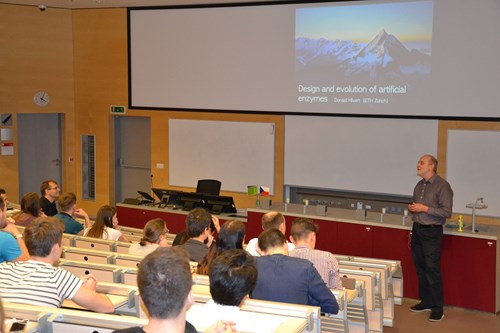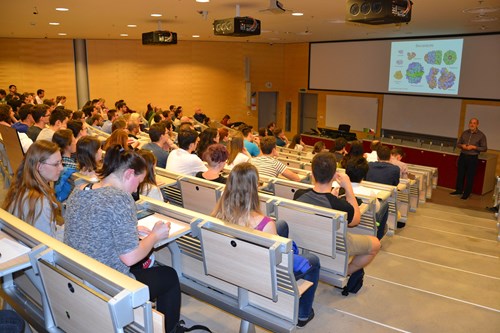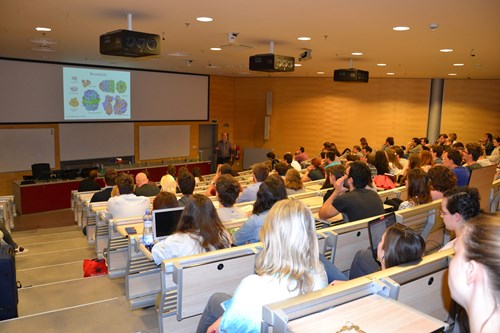Prof. Donald Hilvert
ETH Zurich, Switzerland
- Donald Hilvert has been full Professor at the Organic Chemistry Laboratory of ETH Zurich since October 1, 1997.
- His group is developing general strategies for the design of proteins with customized catalytic properties. The aim is to gain a better understanding of the molecular origins of the catalytic powers of natural enzymes and their selectivity. Beyond that artificial biocatalysts may be useful in research, medicine and industry.
- Donald Hilvert was awarded the Alfred P. Sloan Research Fellowship in 1991-93, the Arthur C. Cope Scholar Award of the ACS in 1992, and the Pfitzer Award in Enzyme Chemistry in 1994.
- Laboratory web: http://hilvertlab.ethz.ch/


